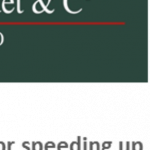Those that request funds from Corfo are the owners of the intellectual property of their invention, whereas researches that access Conicyt’s Fondecyt program, wishing to apply for a patent, must return their resources. Although in practice this penalty is not applied, it shows that there are differences between State organizations associated with sciences, entrepreneurship and innovation, in terms of intellectual property.
If the individual does not intend to patent, the public organization may divulge it, for public use. The change is being processed since 2014, along with the Innovation Division of the Ministry of the Economy, the Agricultural Innovation Fund (FIA), Corfo and the National Council on Innovation for Development. We expect to have a definitive document sometime this year.
It is a necessary change, says Santa Cruz, as this issue has been resolved in many countries. The US is in the lead, since it created a statute in the early eighties that contains provisions under which if a person does not patent, he or she may claim property of the invention or license it.
“They have entities like the National Science Foundation that finances projects and conducts its own research, and therefore they can claim property over the knowledge. Chile does not have this capacity today, but diffusion is permitted”, he explained.
They also expect to include intellectual property criteria as a requirement to access public funding. “An applicant may be requested to submit an analysis of existing patents in the relevant area. The State thereby avoids financing inventions that already exist”, he says.
New business phase
Aware of the need to possess market information, Inapi is creating a technological analysis and patenting division. They are currently conducting a trial run with the Ministry of Mining, analyzing strategic areas of the country, which could be opened for private individuals in 2016.
“We have the best technological database available. For example, Inapi could inform the company that invented a salmon vaccine what is happening in that area in the world, or where there are the most patents”.
The National Institute of Industrial Property (Inapi) designs a regulatory framework that will unify criteria and regulate on knowledge generated with public resources, which will impose obligations on anyone who accessed said funds and create new abilities in the government.
“The system will verify that the person seeking to appropriate his or her innovation fulfills the patentability criteria, exploits it, and discloses it to the public. These days we assign funds and no one knows what is being generated. If we would introduce obligations, taxpayers – the financers of the innovations – would become aware of them”, noted Maximiliano Santa Cruz, the National Director of the Inapi.
Via Diario Financiero, translate by Clarke Modet & Co Chile







